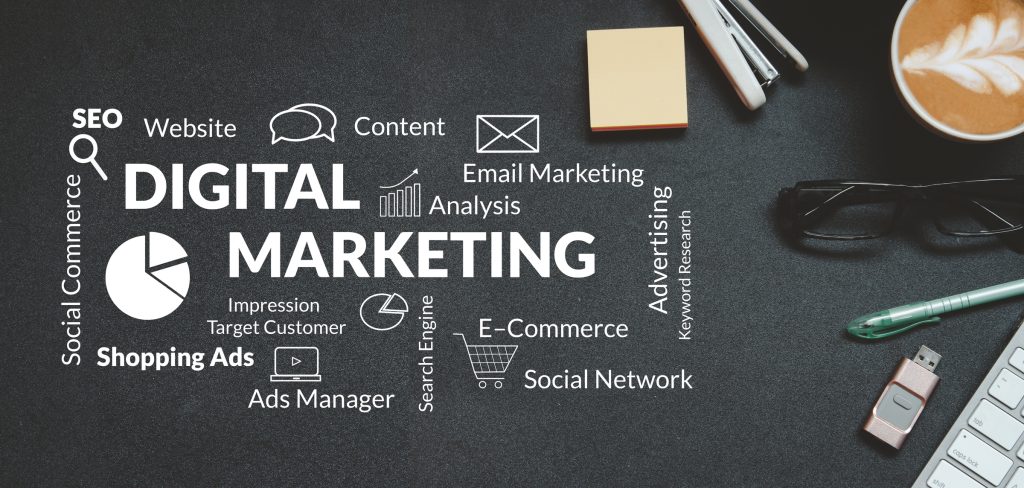For those of you who have never visited a farm before, many of them have a large brick of salt for their animals, called a “salt lick.”
A salt lick is exactly what the name implies. It’s a salt deposit that animals keep coming back to—and licking — in order to ingest nutrients they need. Now, whether or not you want your readers to lick their computer screens is up to you, but you definitely want them to look at your blog as a source of “nutrients” they need to return to and consume.
A small business blog is a marketing tool, but marketing is a nebulous term, especially if you’re an entrepreneur just starting out. You probably think of marketing and sales as synonyms, interchangeable in definition and in purpose. They’re not. Sales is the process of getting a customer to buy; marketing is how you position your product, find your customers, and decide how you’re going to reach them.
Therefore, you shouldn’t start a blog simply to try to generate sales. It’s a place where you find your customers, feed them information, and position your value — the equivalent of a digital salt lick.
Why do people go to the Internet?
Believe it or not, users don’t hop on the Internet for the sole purpose of buying your stuff. They go because they want information. A lot of advertising dollars are thrown away when blogs simply push a product, but offer no information. Or, worse yet, they get in the way of a web user’s search for information.
That tells us a lot about what a blog should offer, doesn’t it? First, it should offer relevant information that people want to consume. And second, it should pave the way to finding that information without obnoxious advertisements blocking the way.
You have to give, in order to get.
Why are you an entrepreneur? Because you want to be your own boss? Because you think you can do something better than anyone else? Because you’re the expert in your industry, and you decided to go rogue?
If you answered yes to any of these things, then, believe it or not, you are an expert. Maybe not on all of the above, but at least some part of it. Heck, even if you’re not an expert, you’re out there doing it–chasing a dream many other would-be entrepreneurs would like to chase. How you’re doing it and why you’re doing it are just as important as whether you’re any good at doing it!
Give this information away for free.
Share what you’re learning, and share regularly so the animals, err, your readers know when and where to easily find the information they want. Do this long enough, and you’ll develop a following of potential customers who are aware of your product or service. Even if they’re not ready to buy now, your brand will be strong in their minds, and they may be sharing your site to other people who are ready to buy now.
Search engines are grading you.
There is a lot of information out there on the Internet. There is a lot of information out there, period. In fact, every 18 months, the total amount of data made in the history of our world doubles, and that rate is speeding up. How then can you stand out in an expanding sea of information?
Search engines are smart. Shortly after you start a blog, the search engine robots (or just bots for short) put your written content through their algorithms. Your blog receives a higher grade if you use proper grammar and spelling, and if website visitors like, share, or comment about your articles.
Search engines also look for important keywords that searchers are looking for. Depending on how many of those words your website has, it will drive up your site’s relevancy, or weed you out of the running based on a lack of it. So before you start a blog, you should be mentally searching for the intersection of what your potential customers want to know, and any specific words or phrases that they might search for in order to find it.
What you’re giving away is supposed to be original, factual, unique, of high quality, interesting, and above all, relevant to what readers want. That’s a lot to balance. My best advice is, focus on offering relevant information that is well-written and engaging. You can sprinkle in keywords and popular search engine topics later, but if your content isn’t good, it won’t matter how well you appeal to search engines. In fact, people may come to your site and dislike what you’re offering, which could do more damage to your brand than good.
Should you start a blog?
Since blogging isn’t that easy, and the search engines are policing your efforts, should a small business maintain a blog? Yes. Your website is more likely to appear higher in the search engine result pages if you have a blog than if you don’t. And those results are important now that more and more people are turning to the Internet to get information and make purchases.
Why is “appearing higher” in the search engine results important? Easy. Think about how you consume information now. Do you scroll through every search engine result you get when you do a search, or, do you choose from the results on the first page, with special attention to those results found at the top of the page?
If you stay at the top of the first page of results, you’re like 95 percent of Web users out there. In fact, people commonly joke that the best place to find a dead body is page 2 of the Google search results. So, where does your blog show up on a list of search results? Do you come in first place in the search results? Second? Third? 400th? This is called pagerank. The more traffic your blog receives, the more engaging its content it is, the more likes and shares it receives, the higher you will rank. And that means more people will find your website; blog, products, services — everything!
How often should you write blog articles?
Blogging is like exercise, and the best exercise is the one that you’ll actually do. My advice is blog when you can, and when you will.
Don’t stress yourself out over it, just start somewhere. Once a month is better than not doing it at all. Weekly is better than monthly, and daily is better than weekly. Just do what you can do. The more you write, the easier it will become — not to mention the increased amount of leads that you will generate from doing so. However, the more time you put into the blogging, the less time you’ll have to spend on running your business. Yes, marketing is part of running your business, but you don’t want your last blog entry to be “How I Ruined my Business Because I Spent too Much Time Blogging.” Time is a currency more precious than money, especially for an entrepreneur. You only have so much, so spend it wisely.
What should you write about?
Once you start your blog, write about your business. Write about your customers. Write about your products. Write about your successes, failures, and lessons learned. And, if you dare, write some interesting stories that pertain to how you decided to become an entrepreneur in the first place.
At my company, we make a point to do all of the above. I habitually inform my readers about the benefits of using payroll software solutions, recall my personal lessons for them, educate them about opportunities for growth (like blogging), and of course, outline the different ways that my team’ssmall business payroll software can help to improve their lives.
The small business value proposition is usually based on a personal and tailored level of care that a bigger business just can’t match. A blog can help you leverage that.
Personal stories about your business success, and how you did it, help your brand become relatable.That’s important. In today’s business world, a small business is just a few bad Yelps from oblivion. Alternatively, your business is a few great reviews from success.
As I said, people go to the Internet to find information. Some of that information is customer reviews about which products are best. If you have a relationship with your customer through your blog, you can leverage the power of the review. And you should!
Can you outsource the writing?
Yes, you can have professional bloggers do your writing for you. And, yes, you can pay them to invent content that would appeal to your readership. That process falls under content marketing.
However, content marketing can come off as disingenuous when executed poorly. If you do decide to start a blog and outsource, make sure you find someone that is excellent and transcribing your content in a tone and style similar to your own.
Consider speaking your own content into a voice recorder, or have your writer interview you. Regardless of how the two of you decide to work together, make sure that the content and writing style is yours.
How many blog articles should you have?
The quality of your articles matters greatly. But size also matters. In a perfect world, you want to blog more frequently than your competitors, and you want to have more articles in your blog than your competitors have. This way, the search engines will see that your website is more active and robust than your competitors’ sites. Plus, more blog articles means there are that many more chances for your website to be discovered when people run Internet searches.
Think of it this way, every time you add an article to your blog, you’re adding more salt for your “salt lick.” The more salt there is, the more animals (i.e., prospective customers) will be able to find your website. Best of all, the blog articles that you write now will still attract prospective customers years from now. This is why I say, “blogging is the gift that keeps on giving!”
___
by MIKE KAPPEL










